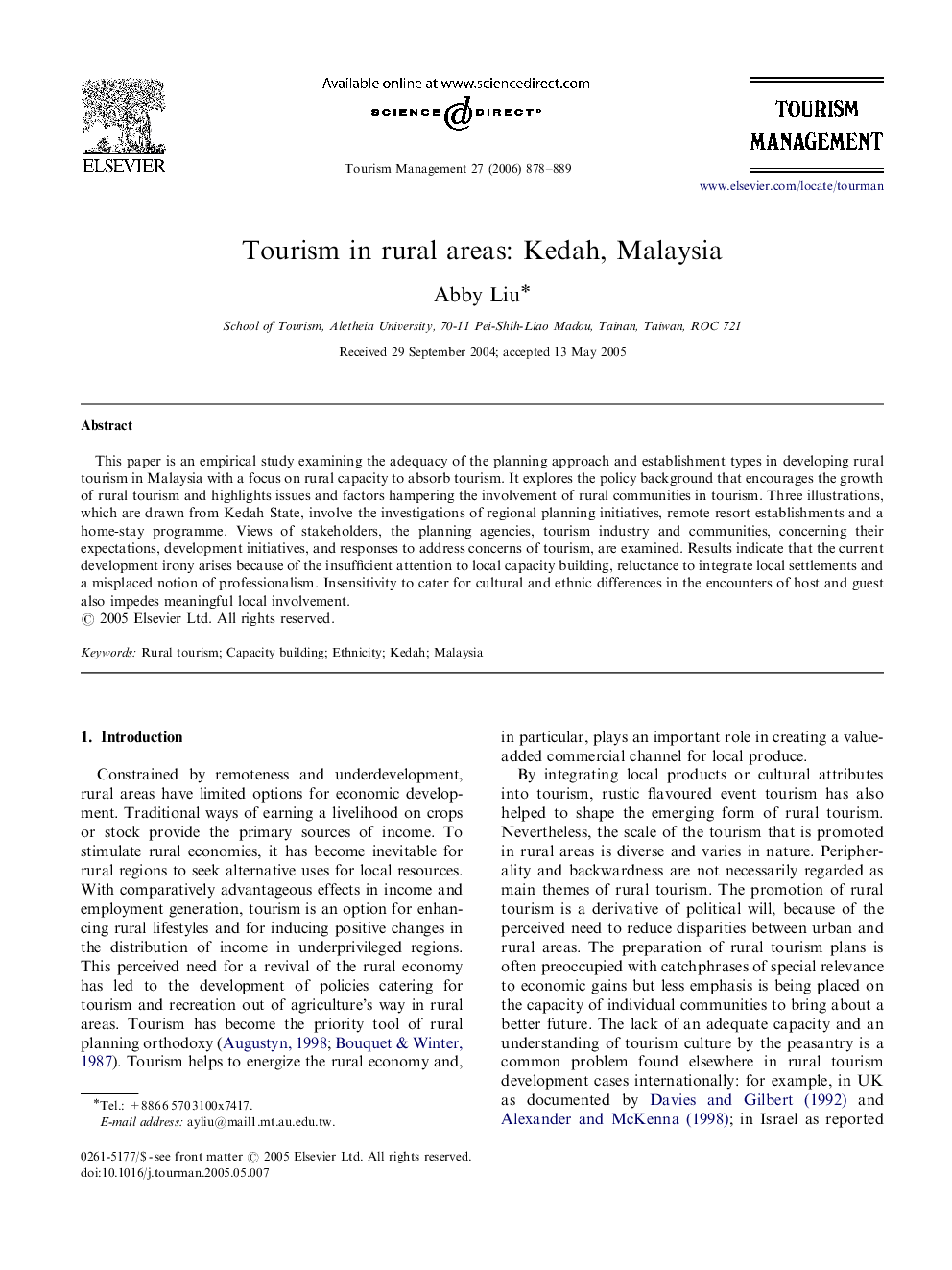| Article ID | Journal | Published Year | Pages | File Type |
|---|---|---|---|---|
| 1013407 | Tourism Management | 2006 | 12 Pages |
This paper is an empirical study examining the adequacy of the planning approach and establishment types in developing rural tourism in Malaysia with a focus on rural capacity to absorb tourism. It explores the policy background that encourages the growth of rural tourism and highlights issues and factors hampering the involvement of rural communities in tourism. Three illustrations, which are drawn from Kedah State, involve the investigations of regional planning initiatives, remote resort establishments and a home-stay programme. Views of stakeholders, the planning agencies, tourism industry and communities, concerning their expectations, development initiatives, and responses to address concerns of tourism, are examined. Results indicate that the current development irony arises because of the insufficient attention to local capacity building, reluctance to integrate local settlements and a misplaced notion of professionalism. Insensitivity to cater for cultural and ethnic differences in the encounters of host and guest also impedes meaningful local involvement.
